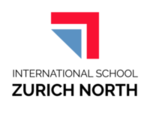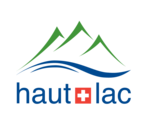Switzerland has different three types of public university education: cantonal universities, Federal Institutes of Technology and Universities of Applied Sciences.
Different universities will typically have all their classes in one language. Universities where courses are taught in German include Bale, Bern, Lucerne, St. Gall and Zurich. Universities where courses are taught in French include Geneva, Lausanne, Neuchâtel and the Swiss Federal Institute of Technology Lausanne. Some universities, such as the one at Fribourg, have courses which are taught in French and German. Lugano's instructors teach in Italian. Many universities also offer lectures in English, especially for master students.
Since the Bologna Accord's three cycles reform, Swiss universities follow the model of: Bachelor (3 years after the Matura), Master (5 years after the Matura), Doctorate (8 years after the Matura). Thanks to this system, every degree you get in Switzerland is comparable and recognized on an international level.
Fees per academic year are from 1,300 CHF up to 8,000 CHF. Some universities make foreign students pay higher fees than Swiss students. Before coming to Switzerland, you may have to prove that you are able to finance both university fees and living costs. Student visa holders are not permitted to work in Switzerland, so you should take that into account when financing your education.
The academic year starts in September and ends in July. It is divided into two semesters: winter, (September to February) and summer (March to July).
Besides universities, Switzerland has a large range of higher education institutes (these are private). However, be careful to check if their courses are recognised by the state.
You can find more information about university studies in Switzerland on Swiss University's portal .
University application
You have to be 18 to apply to a Swiss university, and you must be fluent in the language in which the courses are taught (either German, French or Italian). You will also need to have a Swiss Matura or its foreign equivalent.
Application to universities are made by mail. You have to enclose:
- A letter mentioning the field of studies you are interested in
- A copy of your matriculation certificate
- Copies of your college or university certificates (if any)
- Examination results with an official statement about your studies
- A detailed curriculum vitae.
Depending on the university, you may also have to take an entrance exam. There is an exam session twice a year, one in the second half of June and one in the beginning of October.
Scholarships
There are many scholarship available for Swiss students. The Swiss state as well as the cantons offer them. However, these scholarships often go to Swiss students first. If you are going to Switzerland as an exchange student, you may get a scholarship from your home country or from the Erasmus program.
You can also apply for a ESKAS scholarship which can be offered to graduate students and artists for following their studies in the best Swiss universities. For more details about the ESKAS, you can contact the Commission fédérale des bourses pour étudiant(e)s et artistes étrangers (ESKAS) at +41 (0)31 323 26 76.




